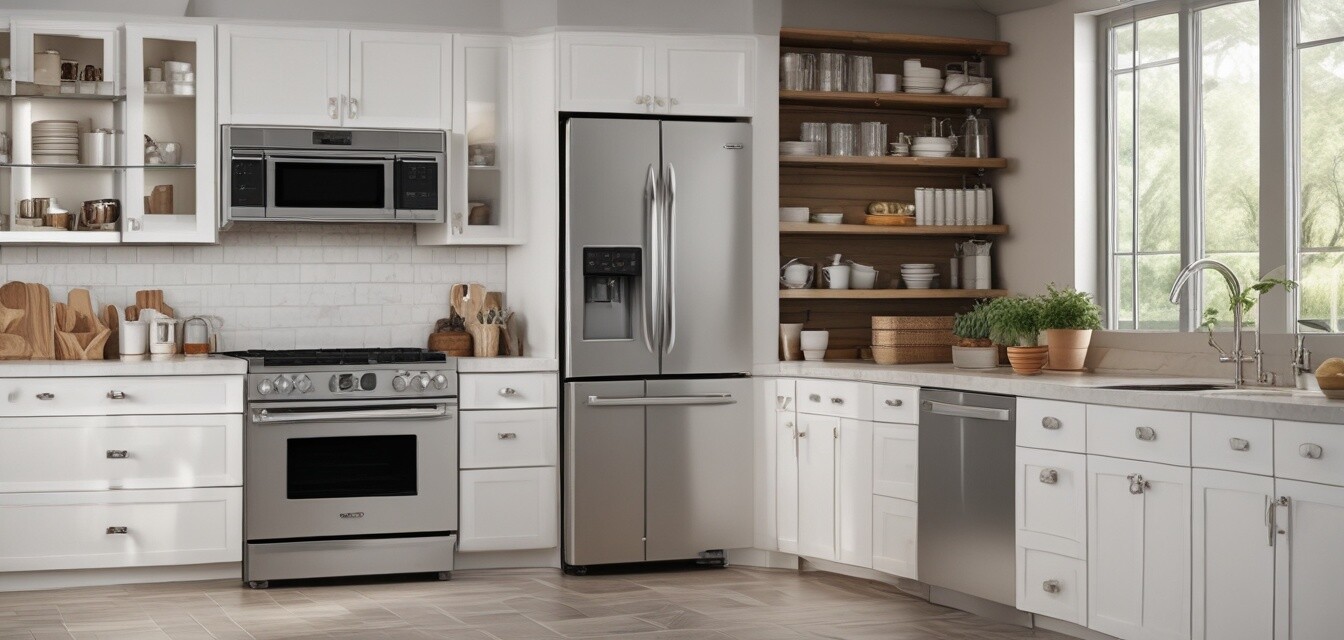
Energy Efficient Practices for Homeowners
- Incorporate energy-saving practices in daily household routines.
- Utilize energy-efficient appliances to lower utility bills.
- Regular maintenance of appliances maximizes performance.
- Understand the role of insulation and weatherproofing in energy conservation.
- Implement smart home technology to monitor and reduce energy usage.
As a homeowner, optimizing energy efficiency is not just a smart financial decision, but also a step toward sustainable living. By adopting energy-efficient practices, you can significantly lower your electricity usage while maximizing the benefits of your appliances. This article touches upon practical tips and methods that can seamlessly integrate into your daily life to create a more energy-efficient home.
1. Understand Your Energy Usage
The first step towards implementing energy-efficient practices is understanding your current energy usage. Monitoring your consumption not only helps identify areas for improvement but also shows your progress over time.
- Use smart meters to track energy consumption.
- Look for spikes in electricity use and investigate their causes.
- Consider contacting your energy provider for a home energy audit.
2. Maximize Appliance Efficiency
Energy-efficient appliances are designed to use less electricity and water, making them a great investment. Here are some tips to maximize the potential of your appliances:
| Appliance | Efficiency Tips |
|---|---|
| Refrigerators | Keep the temperature between 35-38°F and clean the coils regularly. |
| Washing Machines | Use cold water settings and run full loads whenever possible. |
| Dishwashers | Skip the pre-wash cycle; scrape plates instead. |
3. Proper Maintenance of Appliances
Regular maintenance is critical in ensuring appliances run efficiently. Neglected appliances can waste energy and increase costs over time. Here are some maintenance tips:
- Schedule regular check-ups for heating and cooling systems.
- Change filters in HVAC units regularly.
- Inspect and seal any leaks in ductwork.
4. Enhance Home Insulation
Insulation plays a pivotal role in maintaining your home's temperature and reducing energy consumption. Consider these approaches:
- Seal windows and doors to prevent drafts.
- Insulate attics, basements, and crawl spaces.
- Use energy-efficient windows to minimize heat transfer.
5. Smart Home Technology
Smart home technology has revolutionized the way homeowners can manage energy use. Consider implementing the following smart solutions:
- Install smart thermostats to optimize heating and cooling.
- Use smart plugs to monitor and control energy use of appliances.
- Set timers and schedules for lights and heating elements.
6. Behavioral Changes for Energy Saving
Sometimes, simple behavioral changes can lead to substantial energy savings in your home. Here are some actions you can take:
- Turn off lights in unoccupied rooms.
- Unplug chargers and devices when not in use.
- Use natural light whenever possible.
Pros
- Lower energy bills can significantly impact your budget.
- Contributes to a reduction in carbon footprint.
- Increases overall comfort within the home.
Cons
- Initial costs for energy-efficient appliances can be high.
- Some upgrades may require professional installation.
- Limited available upgrades for older homes.
Conclusion
Implementing energy-efficient practices in your daily life can lead to substantial savings and a positive impact on the environment. Regular monitoring of energy usage, careful maintenance of your appliances, and a commitment to sustainable practices will not only enhance your home but also contribute to a healthier planet. For more information and tips on energy-efficient appliances, visit our Tips and How-to Articles category.
